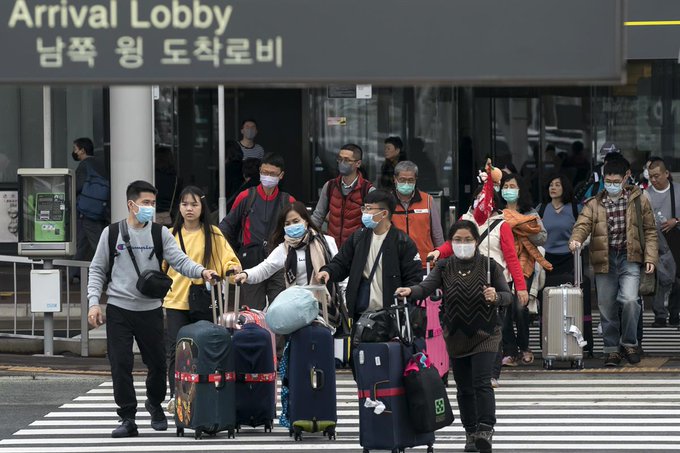New Delhi (NVI): With coronavirus spreading across countries, the fears and misconceptions about the virus are also spreading on social media.
To check this, the World Health Organization (WHO) has started a campaign to educate people about the deadly virus.
Here are answers to some questions regarding coronavirus:
Will eating lots of garlic help?
No, garlic is considered a healthy food with some antimicrobial properties – but there are no indications it’s helping anyone fight off 2019-nCoV.
Also, vaccines against pneumonia and flu do not provide protection against the novel coronavirus, WHO said.
It’s simply too new, and work on a vaccine specifically for the new virus is still in process. At the World Economic Forum Annual Meeting in Davos last month, the Coalition for Epidemic Preparedness Innovations announced a new partnership to develop vaccines for 2019-nCov as quick as possible.
There are still things you can do, such as washing your hands especially if you have been sneezing. And if you are sneezing, make sure to cover and catch that sneeze.
You can cup your hands over your face, or sneeze into the crook of your elbow, or into a tissue. But make sure to securely dispose of the tissue straight away.
Can I contract the virus from letters and packages sent from China?
No, according to the WHO, people receiving post from China are not at risk of catching the new coronavirus.
The WHO knows from previous analysis that coronaviruses do not survive long on objects, such as letters or packages.
What about pets? Can I catch it from them?
The 2019-nCoV may have come from animals, but your pets are not likely to be part of the equation.
Accodring to WHO “At present, there is no evidence that companion animals and pets such as dogs or cats be infected with the new coronavirus.”
There are lots of other reasons for good hygiene around pets, though.
Some common bacteria can pass between animals and people, such as E.coli and Salmonella. Washing your hands with soap and water can guard against them.
Who is most at risk?
According to the WHO, Older people and anyone with pre-existing medical conditions, like asthma, diabetes or heart disease, appear to be more vulnerable to becoming severely ill with the coronavirus.
In the 2002-2003 SARS outbreak, 8,422 people were infected and there were 916 deaths worldwide.
The overall death rate for infected people was 11%. But for infected people 24 and younger, the death rate was just 1%, while for those aged 65+ it was 55%.
In short, anyone can catch a virus. But the effect it will have on you, and how seriously ill you might become, can be dependent on several other factors.
The virus, 2019-nCoV has now been detected in 23 countries, with more than 17,000 people confirmed to be infected.
The majority of people infected are located in China, where more people have now died from the new coronavirus than were killed by Severe Acute Respiratory Syndrome (SARS) in 2002-2003. So far, 362 people have died from the new coronavirus.








